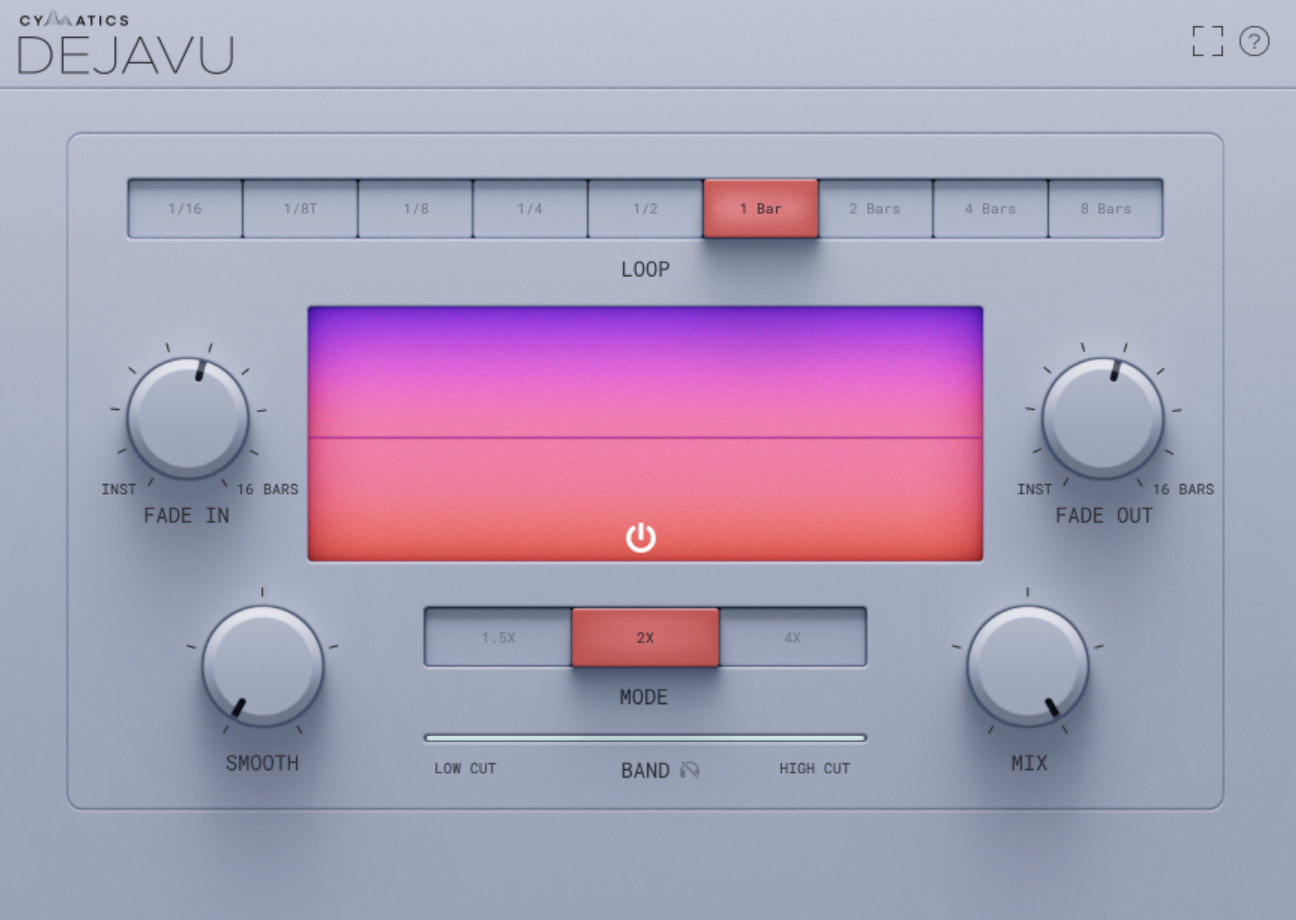Cymatics have quite a history of releasing quality freebies, with at least some of them being freeware versions to their (already) commercially available VST plugin effects. One of them is the Space Lite reverb unit – which I actually covered in a recent post of mine where I shared a list of my go-to “combo” style reverbs.
Cymatics Present: Time-Stretch Magic in Real Time
Mid-October, not too long ago, Cymatics would present the beat making musician community with yet another free plugin: An addition to the company’s growing, open catalog of audio FX, called Deja Vu.
Cymatics DejaVu is not another “lite” product by any means. Not at all. It is a powerful, unlimited time-stretch (aka time-warp) VST effect utility, which promises to give your productions a “dream-like sound”. And well, it promises, and it certainly provides.

As accurately described by the developers, Deja Vu is essentially a tape machine emulation device. It has the ability to transform raw, live audio in real time, as it generates these unique, slowed-down pitch manipulated playback style effects that one would (optimally) achieve using a vintage tape or cassette player.
Deja Vu could be applied on specific MIDI instrument tracks or straight on a project’s Master channel in one’s DAW. I actually find the latter even more fruitful than the formerly mentioned method, as it usually gives a much cohesive sounding outcome (and overall better results).
The Plugin: Efficient Pitch Shifter, Quality Tape Emulator
Cymatics Deja Vu supports both Windows and Mac systems. It comes in a 64-bit VST3 plugin form, available for your digital audio workstation.
Judging by the appearance of it, the Deja Vu interface is nice and slick. It has this grayish tape machine inspired layout, which apart from being quite appealing to the eye – is very user friendly and most importantly, practical. There’s also a colorful visualizer in the middle which displays the incoming audio signal, and a selection of knobs and buttons on the sides of it.
Rhythmic Pitch Shifter, Harmonizer
The plugin works according to a user-defined tempo and rhythmic pattern. On top, there’s a row of buttons representing the nine different time signatures available, with options that go from 1/16 (the fastest) up to 8 full bars (the slowest). Deja Vu will create loop points* based on the time signature that was chosen. Then, using the octave setup below, it will generate a fitting harmonious structure.
*Relating to the in-built frequency filter and gate sequencer, among other on-board effects.
The octave setup (labeled “Mode”) essentially has three options to choose from, with the first being a -5 semitone interval – or half an octave below (marked 1.5x), the next being a -1 octave option (marked 2x) and the remaining possibility which is a -2 (marked 4x). I’ve found the last option to be less practical in the context of a full mix, as it usually turns out to be either muddy or completely inaudible. The best sounding setup, in most situations, would be the second one mentioned.
Additional Features
We are now left with three featured parameters that are worthwhile to mention as well:
- The Smooth feature – adjusts the prominence or clarity of the effect, based on the numeral value set by the user (positive or negative). A negative value will sharpen the effect and make it more present and vivid, while a positive would do the exact opposite.
- Band (global frequency cutoff filter/s) – controls how much of the effect is actually applied, based on the range of frequencies that you set.
- Fade In & Fade Out – a gradual “attack and release” transition between the dry, source input and the wet (mixed) output. It works by triggering the internal power button that’s located inside the soundwave display.
Cymatics Deja Vu: Conclusion
Since released, I have tried this effect on several projects in numerous occasions, and was astonished each and every time seeing (and hearing) what it was capable of.
Using its variety of useful features, one could achieve some very obscure yet decent sounding musical results with ease.
A truly wonderful piece of software, Cymatics Deja Vu could turn a happy song into a dark and moody track with zero effort.




